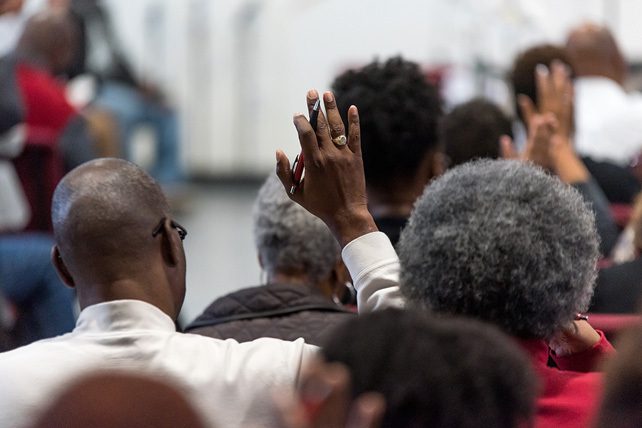By prioritizing intellectual and spiritual growth, Black churches honor their legacy of using education as a tool for change. Their efforts prepare future generations to lead churches and communities with wisdom, courage, and Godly vision.
Economic Initiatives
Black churches both large and small have long recognized that true ministry extends beyond spiritual care. Congregations also must address the material needs of their members and communities. Through initiatives such as financial-literacy workshops, job-training programs, and small-business support, churches help people overcome systemic barriers and establish economic stability. These efforts reflect a theology of stewardship that integrates faith with practical solutions for everyday challenges.
Some larger and midsize Black churches have formed community development corporations (CDCs) to provide affordable housing, financial resources, and social services. In the process, they strengthen families and transform neighborhoods. Many smaller congregations connect members to employment opportunities, offer financial assistance, and partner with local organizations to provide resources.
These efforts, rooted in the biblical call to care for the poor and oppressed, demonstrate how Black churches address spiritual and material needs holistically. Their work uplifts individuals while creating sustainable pathways to prosperity, ensuring that people live out their faith through action.
The State of Your Flock
Relational leadership has always been a hallmark of Black churches, where personal connections and genuine care are central to pastoral ministry. To discern spiritual and practical needs, church leaders often engage directly with members through conversations, community meetings, and small group gatherings. This approach builds trust while ensuring that pastors stay in touch with their congregants.
Even when resources are limited, Black churches demonstrate remarkable adaptability. Many work with local groups or mobilize volunteers to extend their support capacity. For example, some congregations provide counseling services and other mental health resources to practically meet people’s real needs.
This holistic commitment to care reflects a deep understanding of ministry. By blending multiple forms of support, Black churches set important examples for other congregations. They model how to value members, engage in relational leadership, and conduct community-based ministry.
Lessons for Other Churches
The Black Church offers a wealth of wisdom that can benefit congregations of any size, denomination, or background. Practices such as mentorship, storytelling, hospitality, education, economic empowerment, and relational care provide a roadmap for building vibrant faith while meeting earthly needs.
Mentoring ensures that a church’s legacy continues through generations. Storytelling makes theology accessible and meaningful. Hospitality and fellowship create environments where people feel valued and included. Education equips individuals to rise above barriers. Economic empowerment brings much-needed stability to families and communities.
Through a holistic approach, churches cultivate resilient congregations that not only survive but thrive. The Black Church’s commitment to nurture, in all its forms, reminds us that ministry isn’t limited to the sanctuary. It happens when people shape lives and transform communities.

